Content
Repairing strawberries or garden strawberries have been particularly popular among gardeners in recent years. And this is not surprising, since they allow you to harvest from several times during the growing season and, thus, be able to enjoy delicious and fresh berries almost all year round. But you need to understand that remontant varieties have several features that must be taken into account in order not to be disappointed in the process of growing them.
Vima Rina is a typical representative of remontant strawberries, a description of the variety, reviews and photos of which you can find in this article. It is part of the Dutch strawberry series under the general name Vima. But of the four most famous varieties in this series - Zanta, Rina, Xima, Tarda, only she is a remontant. And not just a remontant, but also a strawberry of a neutral day.
Repair strawberry, what is it
The very concept of remontantity in relation to any plants only implies their ability to repeatedly flowering and fruiting during the entire vegetative period. As for strawberries, they, in addition, distinguish between short, neutral and long day varieties. The first ones have been familiar to all gardeners since ancient times and are typical representatives of traditional strawberries with fruit ripening once a season. They form buds only with a short day (less than 12 hours), usually in late summer and autumn.
Long day strawberries form flower buds with a day length of about 16-17 hours. It can give two or three harvests during the warm season, so it can rightfully be attributed to remontant varieties.
Therefore, in greenhouse conditions, these strawberry varieties can be easily grown year-round. The budding process of these varieties proceeds in cycles, each taking approximately six weeks. Therefore, in the open field, depending on the climatic conditions of the region, strawberry varieties of this type can give from two to four waves of fruiting per season.
Abroad, the concepts of remontant strawberry and neutral day practically merged together, since almost all remontant strawberry varieties are a priori neutral day varieties. In our country, it is customary to distinguish between these concepts, since sometimes there are varieties of strawberries with long daylight hours, for example, Garland, Moscow delicacy, Temptation f1, Tuscany f1 and others.
Description of the variety
Wim Rin's strawberry was obtained by breeders of the Dutch company "Vissers" by random sowing of seeds. The parental varieties of Vima Rina are not exactly known, but judging by the description of the variety and characteristics, among her predecessors there was a variety strawberry selva.
Vima Rin's strawberry bushes are powerful, have significant vigor, medium spreading. They grow a large number of leaves that can protect the berries from the strong sun in hot weather. The leaves themselves are medium in size, colored light green. The surface of the leaf is convex, strongly ribbed and shiny, decorated with small denticles along the edges. The flowers, which grow to the same level as the leaves, are medium in size and have a traditional white color. Inflorescences are spread out in different directions on a long peduncle.
Wim Rin's strawberries develop a very small number of whiskers, so reproduction in the traditional way is difficult.You can use seed propagation, as well as use the division of the bushes every two to three years. But taking care of the bushes thanks to this is greatly simplified.
This strawberry variety is highly winter-hardy and tolerates drought rather moderately.
It is not for nothing that the Vima Rina variety is very popular with both summer residents and farmers - it is able to demonstrate high yield rates - from one bush you can collect from 800 to 1200 grams of berries during the warm season.
When grown in a heated greenhouse and additional lighting, the berries can ripen until the New Year. Then the bushes need a short break of 2-3 months, and with continued competent care, the next crop may appear, already starting from April-May.
If you grow Wim Rin strawberries under ordinary film shelters, then the first harvest can be obtained in May and fruiting will last until November. In the open field, strawberries from this variety get an average of 2-3 harvest waves, from June to the first frost.
When properly cared for, the bushes show good resistance to most of the most traditional diseases.
Characteristics of berries
In general, Vima Rin's strawberries are considered one of the best remontant varieties, primarily in terms of their taste.
- The berries have a slightly elongated conical shape of a rich bright red color with a pronounced beautiful gloss. The seeds are very small and are not felt at all when eaten.
- The flesh is also red, rather firm, although it does not possess the characteristic crunchiness of other remontant varieties, such as Albion.
- The berries of this variety belong to the large-fruited type, their average weight is 35-45 grams, although specimens weighing up to 70 grams can be found under good care conditions. In autumn, the size of the fruit may decrease slightly.
- The taste of the berries is really very interesting, sweet with a slight cherry flavor and a pronounced strawberry aroma. Professional tasters rate the palatability at 4.8 points.
- Berries of this variety are very good for eating fresh, and for various preservation, including drying and freezing.
- The fruits also store well and can be transported over short distances.
Growing features
Wim Rin strawberries can be planted at almost any time. Planting in autumn and early spring is considered the most traditional. The temperature range at which flower buds are set in this variety is very large - from + 5 ° С to + 30 ° С.
The planted seedlings take root very well. Good quality seedlings should have a strong root system and about 6 well-developed leaves. Unlike many varieties of strawberries of a neutral day, Vima Rina is quite capable of living and bearing fruit in one place for two or three years in a row, practically without losing, and even adding to its yield. But for this, plants require abundant and regular feeding. Then the bushes must be replaced with young ones grown from the mustache seeds, or divided into several parts, thus rejuvenating them.
But many gardeners practice the cultivation of Wim Rin strawberries as if in an annual culture, mercilessly removing all the fruit-bearing bushes and leaving only young plants obtained from the rosettes.
Before planting, the soil must be very well filled with organic matter.
It should be understood that when using mainly nitrogen-containing fertilizers when feeding Vim Rin's strawberry bushes, plant growth will increase and more or less significant whisker formation can be expected. But the quality of ripened berries deteriorates somewhat.Therefore, such dressings should be used if you plan to start up the bushes mainly for reproduction, and the quality of the berries is not of paramount importance.
If you use fertilizers with a predominant content of phosphorus and potassium, then the taste of the berries will approach perfect. During the entire growing season, it is necessary to feed the bushes every time at the beginning of flowering, as well as at the beginning of berry ripening and after fruiting. After formation, the berries ripen in about 14-16 days.
Gardeners reviews
Reviews of gardeners about Wim Rin's strawberries are mostly positive. But many descriptions and characteristics often do not coincide with each other. Perhaps this is due to the fact that due to the popularity of this variety, unscrupulous sellers sell under the guise of Wim Rina not quite what is really a strawberry of this variety.
Conclusion
If you prefer remontant strawberries or just want your berry strawberry season to last throughout the summer, be sure to try planting Wim Rin strawberries on your plot. Moreover, it can even grow on a balcony or in a small indoor garden.
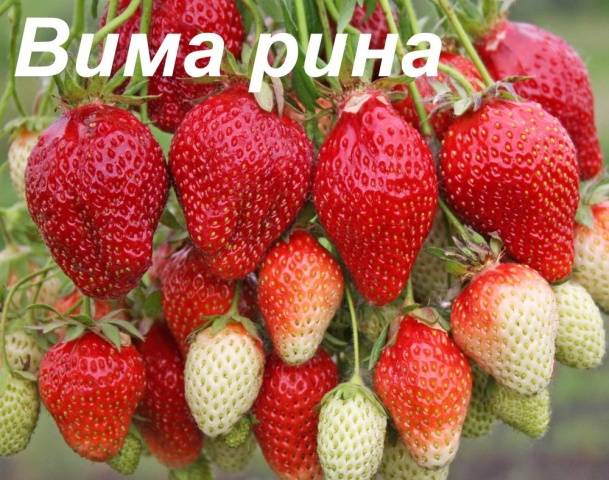
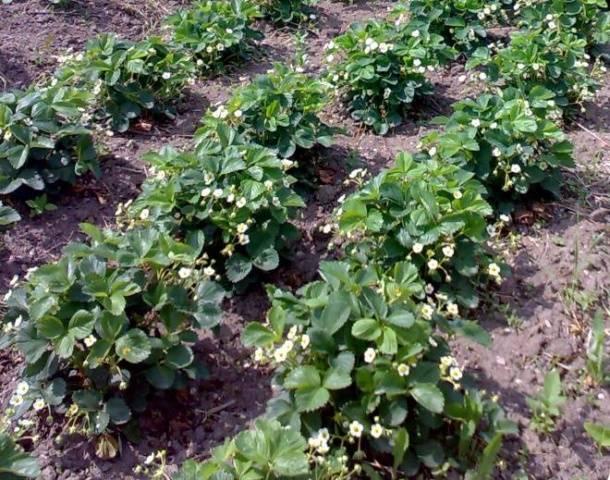
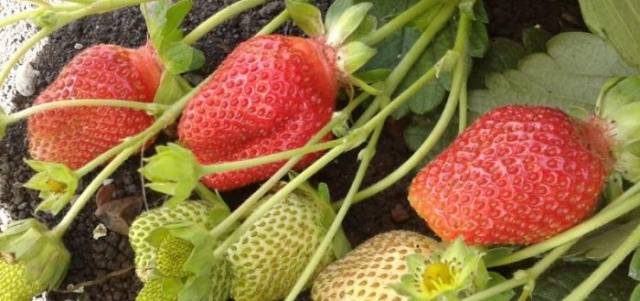
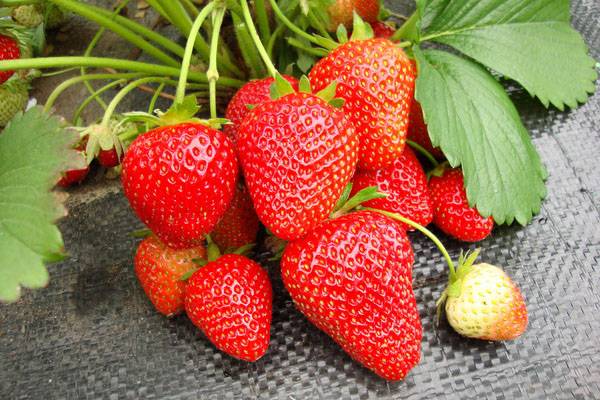
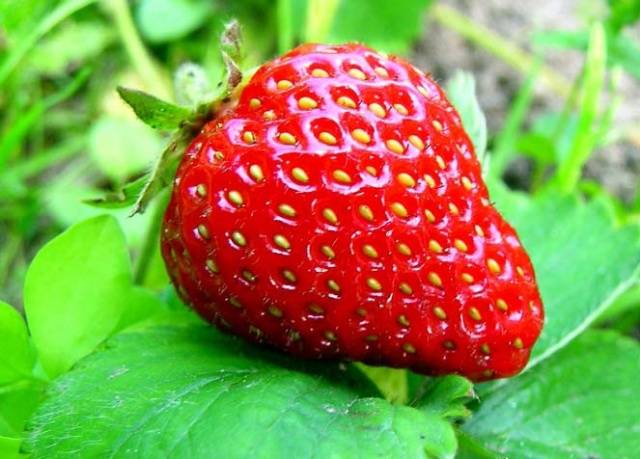
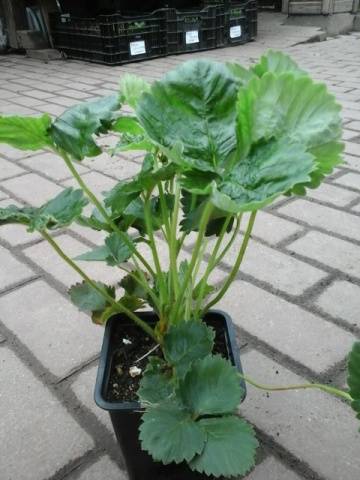
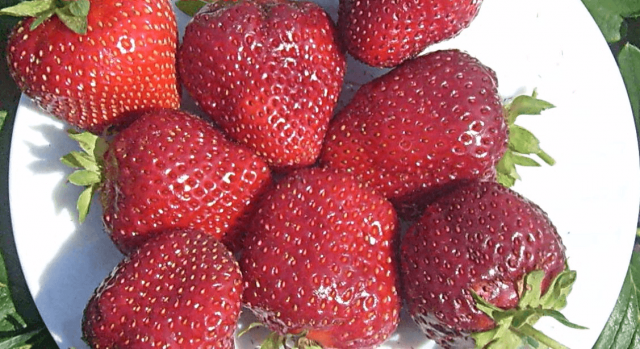
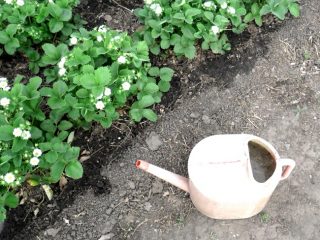
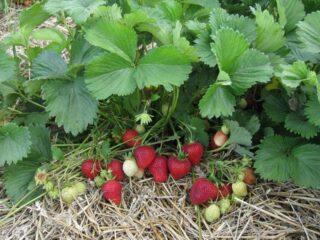
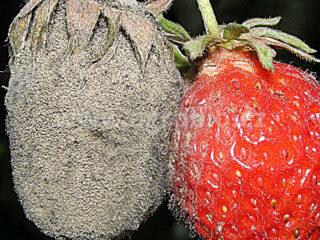




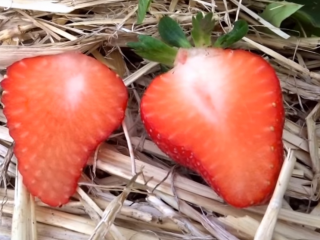
Maybe you bought a re-grade. I had several remontant varieties of strawberries, the best in taste was Vima Rina, sweet even after the rains, fragrant, not oaky like other rems. It was Vima Rina that I left for breeding.
I am not happy with this strawberry, the berry ripens for a long time, the seeds are large, the taste is so-so, if the bush is boiled in the sun, many are not happy with the gardeners, your description does not correspond to what you have, you spend so much energy on it, feeding, etc. .d. not worth it. Praised. I will clean up!